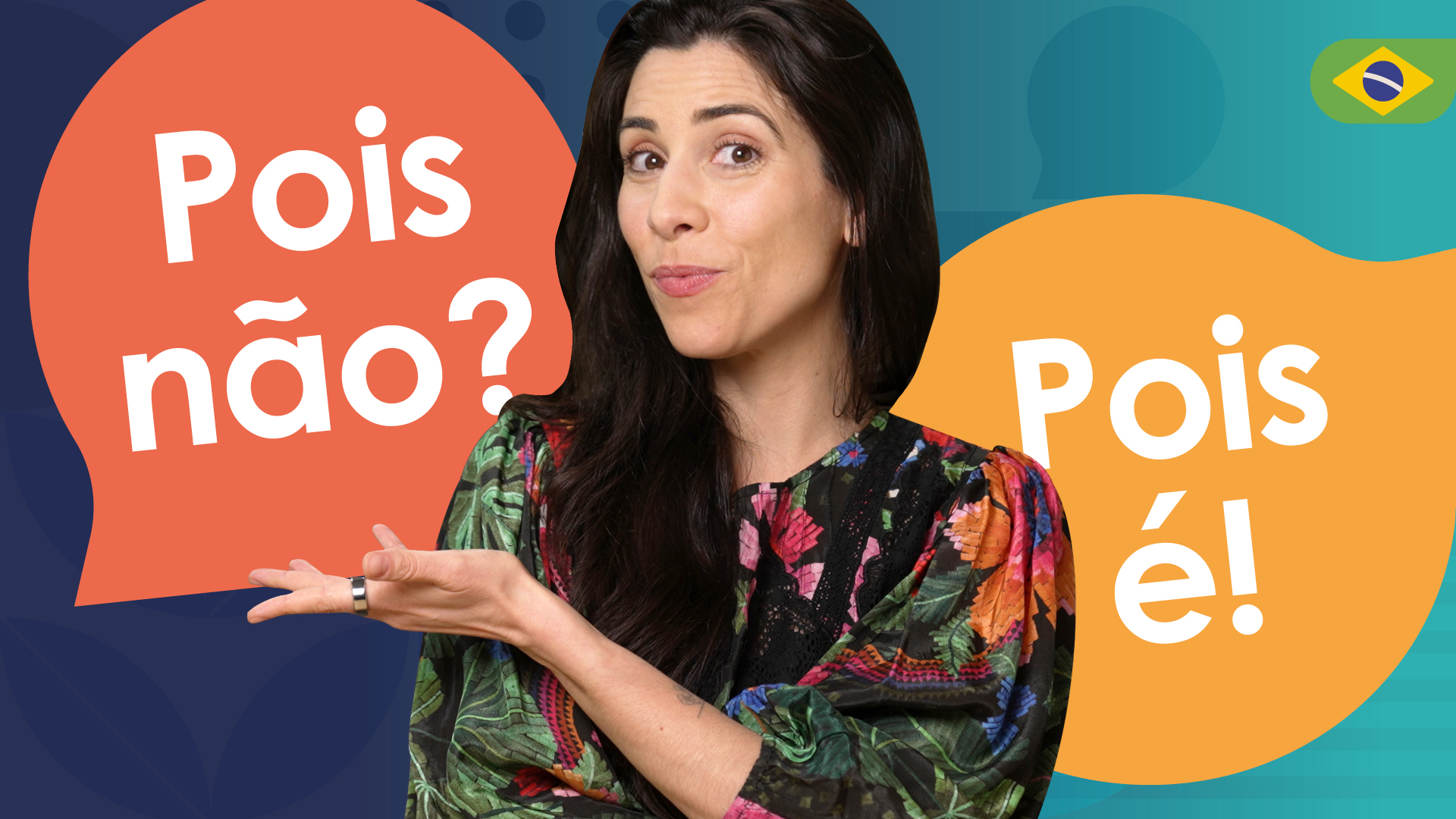Join the Speaking Brazilian YouTube Club to have access to the transcript of this video and many other videos.
Do you know how to use the word QUE (what) in Portuguese?
What is the difference between QUE and O QUE? When should we say QUE or QUAL? QUE or QUEM? It’s time to learn!
1- QUE or O QUE?
A) Before a noun, we should only use the word QUE:
- Que barulho é esse? (What is that noise?)
- Que dia você vai viajar? (What day are you going to travel?)
B) Before a verb, a personal pronoun + verb or person’s name + verb, we can say QUE or O QUE, but O QUE is much more used:
- Que você vai fazer no próximo sábado? (What are you doing next Saturday?) – less common
- O que você vai fazer no próximo sábado? (What are you doing next Saturday?) – more common
- Que o João te disse? (What did John tell you?) – less common
- O que o João te disse? (What did John tell you?) – more common
2- QUE or QUAL?
A) The word QUAL is also an interrogative pronoun.Usually, we use the word QUAL with the verb SER:
- Qual é o seu nome? (What is your name?)
- Quais são os seus planos para amanhã? (What are your plans for tomorrow?)
B) Note that the word QUAL varies in number:
- QUAL É… (WHAT IS…)
- QUAIS SÃO… (WHAT ARE…)
C) Note that we don’t use the word QUAL right before other verbs.
- Qual vamos fazer para o jantar? (What are we going to make for dinner?) – incorrect
- O que vamos fazer para o jantar? (What are we going to make for dinner?) – correct
D) The word QUAL also has selective value and is commonly used to indicate one thing among several.
- Qual destes pratos você prefere? (Which of these dishes do you prefer?)
E) In some cases, the words QUE and QUAL can be used interchangeably without changing the meaning of the sentence:
- Quais filmes brasileiros você recomenda? (Which Brazilian movies do you recommend?)
- Que filmes brasileiros você recomenda? (What Brazilian movies do you recommend?)
- Qual desenho o seu filho gosta de ver? (which cartoons does your child like to see?)
- Que desenho o seu filho gosta de ver? (what cartoons does your child like to see?
3- QUE or QUEM?
A) When we use the words QUE (What) and QUEM (Who) to ask questions, QUE means WHAT, and QUEM means WHO:
- Que horas são? (What time is it?)
- Quem é aquela pessoa? (Who is that person?)
B) We also use the words QUE or WHO as relative pronouns;
- Não fui eu que disse isso. (It wasn’t me who said that.) – more common
- Não fui eu quem disse isso. (It wasn’t me who said that.) – less common
- As pessoas que vieram à festa eram muito legais. (The people who came to the party were really nice – more common
- As pessoas que vieram à festa eram muito legais. (The people who came to the party were really nice. – less common
C) Note that we use the word QUEM only to refer to people, while the word QUE can be used for people, animals and objects.
- Foi aquele cachorro que comeu a comida do gato. (It was that dog that ate the cat’s food.)
That’s it, everybody!
Até a próxima!
Your teacher,
Virginia


